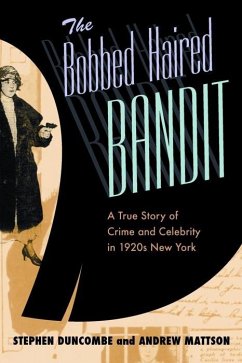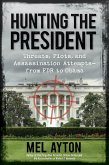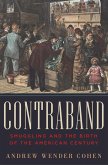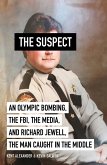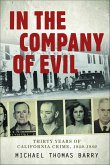Illuminates the life and image of one of New York City's most fashionable criminals-Celia Cooney
Ripped straight from the headlines of the Jazz Age, The Bobbed Haired Bandit is a tale of flappers and fast cars, of sex and morality. In the spring of 1924, a poor, 19-year-old laundress from Brooklyn robbed a string of New York grocery stores with a "baby automatic," a fur coat, and a fashionable bobbed hairdo. Celia Cooney's crimes made national news, with the likes of Ring Lardner and Walter Lippman writing about her exploits for enthralled readers.
The Bobbed Haired Bandit brings to life a world of great wealth and poverty, of Prohibition and class conflict. With her husband Ed at her side, Celia raised herself from a life of drudgery to become a celebrity in her own pulp-fiction novel, a role she consciously cultivated. She also launched the largest manhunt in New York City's history, humiliating the police with daring crimes and taunting notes.
Sifting through conflicting accounts, Stephen Duncombe and Andrew Mattson show how Celia's story was used to explain the world, to wage cultural battles, to further political interest, and above all, to sell newspapers. To progressives, she was an example of what happens when a community doesn't protect its children. To conservatives, she symbolized a permissive society that gave too much freedom to the young, poor, and female. These competing stories distill the tensions of the time.
In a gripping account that reads like a detective serial, Duncombe and Mattson have culled newspaper reports, court records, interviews with Celia's sons, and even popular songs and jokes to capture what William Randolph Hearst's newspaper called "the strangest, weirdest, most dramatic, most tragic, human interest story ever told."
Ripped straight from the headlines of the Jazz Age, The Bobbed Haired Bandit is a tale of flappers and fast cars, of sex and morality. In the spring of 1924, a poor, 19-year-old laundress from Brooklyn robbed a string of New York grocery stores with a "baby automatic," a fur coat, and a fashionable bobbed hairdo. Celia Cooney's crimes made national news, with the likes of Ring Lardner and Walter Lippman writing about her exploits for enthralled readers.
The Bobbed Haired Bandit brings to life a world of great wealth and poverty, of Prohibition and class conflict. With her husband Ed at her side, Celia raised herself from a life of drudgery to become a celebrity in her own pulp-fiction novel, a role she consciously cultivated. She also launched the largest manhunt in New York City's history, humiliating the police with daring crimes and taunting notes.
Sifting through conflicting accounts, Stephen Duncombe and Andrew Mattson show how Celia's story was used to explain the world, to wage cultural battles, to further political interest, and above all, to sell newspapers. To progressives, she was an example of what happens when a community doesn't protect its children. To conservatives, she symbolized a permissive society that gave too much freedom to the young, poor, and female. These competing stories distill the tensions of the time.
In a gripping account that reads like a detective serial, Duncombe and Mattson have culled newspaper reports, court records, interviews with Celia's sons, and even popular songs and jokes to capture what William Randolph Hearst's newspaper called "the strangest, weirdest, most dramatic, most tragic, human interest story ever told."
Dieser Download kann aus rechtlichen Gründen nur mit Rechnungsadresse in A, D ausgeliefert werden.

